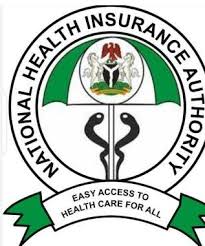The National Health Insurance Authority (NHIA), says it enrolled two million poor and indigent Nigerians as beneficiaries of a comprehensive Basic Minimum Package of Health Services through the State Health Insurance Agencies (SHIAs).
Dr Kurfi Abubakar, Head, Policy, Planning and International Collaboration, Division, disclosed this on Tuesday at a two day Joint Learning Agenda(JLA), on Universal Health Coverage (UHC), Health Financing and Budget Advocacy.
Abubakar said the agency was also working towards 83 million vulnerable Nigerians to be covered under the Compulsory Social Health Insurance (CSHI).
He said that the NHIA Act would solved out-of-pocket expenditure for Nigerians when fully implemented.
He said that the country working hard towards achieving UHC, as the Authority was ready to implement the Act and get Nigerians internalised.
“With the NHIA, efforts to tackle high incidence of poverty caused by out-of-pocket expenses for healthcare, through health insurance for all categories of Nigerians by 2030 is now more realisable than ever before,” he said.
Dr Sakinatu Dan’agalan Capacity Development Lead; National Primary Health Care Development Agency (NPHCDA), BHCPF, said that the specific objectives of implementing the Basic Health Care Provision Fund (BHCPF) were to achieved at least one fully functional PHC facility in each ward.
“As least 30 per cent of all wards over the next three years, 70 per cent within five years, and 100 per cent within seven years, she said.
Dan’agalan said that it would achieved at least three fully functional public or private secondary health care facilities, benefitting from the BHCPF in the 36 states of the federation and the FCT.
“At least 50 per cent of all states over the next three years, and 100 per cent within five years.
She said that the BHCPF would also establish effective emergency medical response services in 36 states of the federation and the FCT.
Mrs Oyeyemi Pitan
ED Gem Hub Initiative
Co-Convener Joint Learning Agenda for UHC in Nigeria, said that the overview of the JLA is to advanced Health Insurance Uptake in the country at National and Sub-national levels.
Pitan said that this would ensure financial risk protection for the most vulnerable in the country.
“Initial focus is on 2 States ( Lagos and Kano with plans to scale up to other states based on available resources.
“To also promote CSO understanding of the NHIA, Implementation guidelines and opportunities for partnership and facilitate platform for engagement among various stakeholders,” she said.
She said that the overview would also develop civil society scorecards for tracking national and subnational implementation of the NHIA Act.
Mr Ademuyiwa Damilola, Program Manager, Legislative Initiative for Sustainable Development (LISDEL), said that the Legislature had made valuable impact towards health system strengthening in the country.
Damilola said that a country’s health system that fulfills its responsibilities to citizens cannot function in isolation.
He said that the country needs good governance in terms of policymaking, fund allocation, oversight, and accountability mechanisms.
Ms Olayide Akanni
ED Journalist Against AIDS,
Co-convener Joint Learning Agenda for UHC in Nigeria; said that the overview would secure commitments for the inclusion of Reproductive, Maternal, Newborn, Child, Adolescent and Elderly Health Plus Nutrition (RMNCAEH+N), services such as family planning consumables in the National and State Health Insurance Schemes.
Akanni said that the overview would also promote CSO understanding of current priorities with the State Health Insurance schemes, gaps and opportunities for collaboration.

